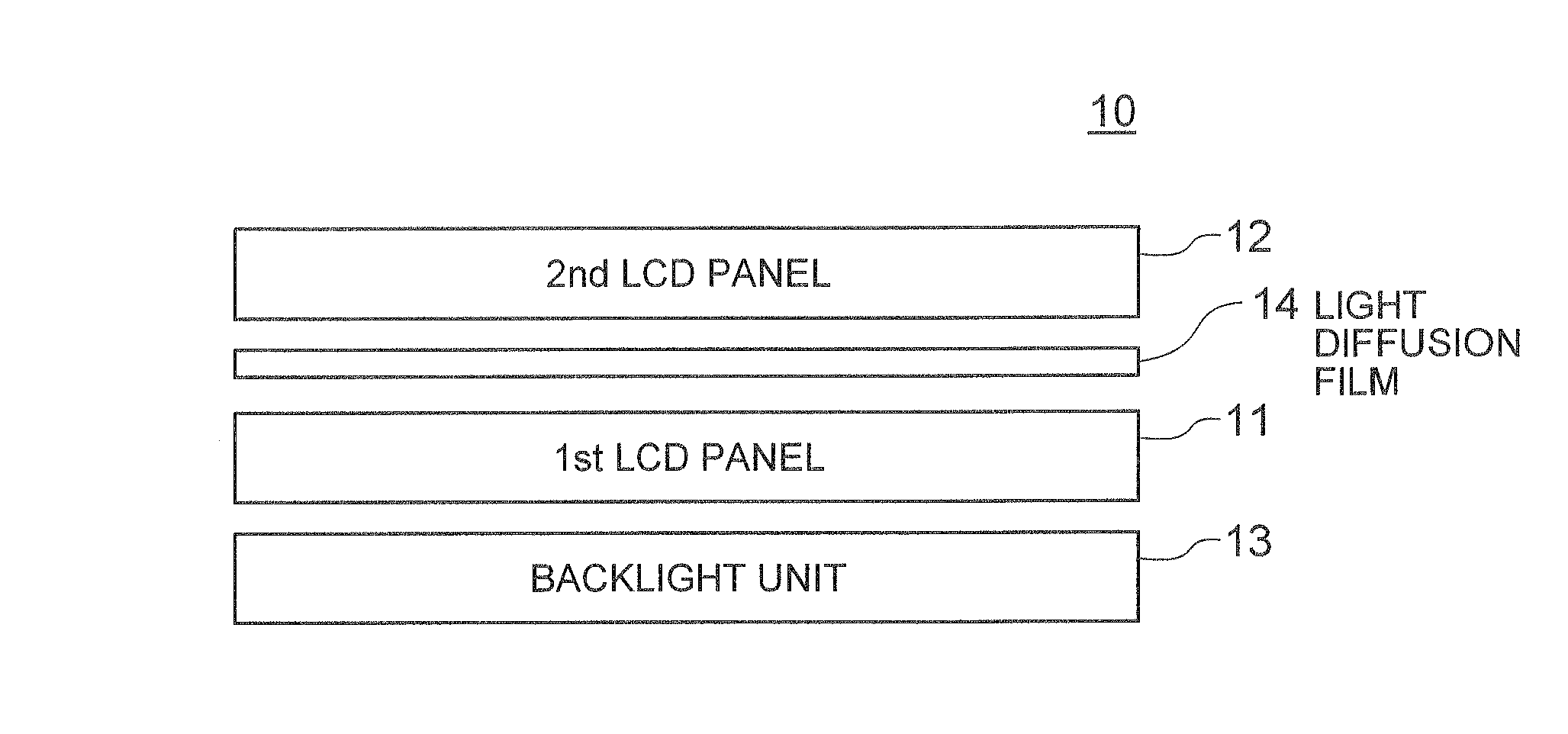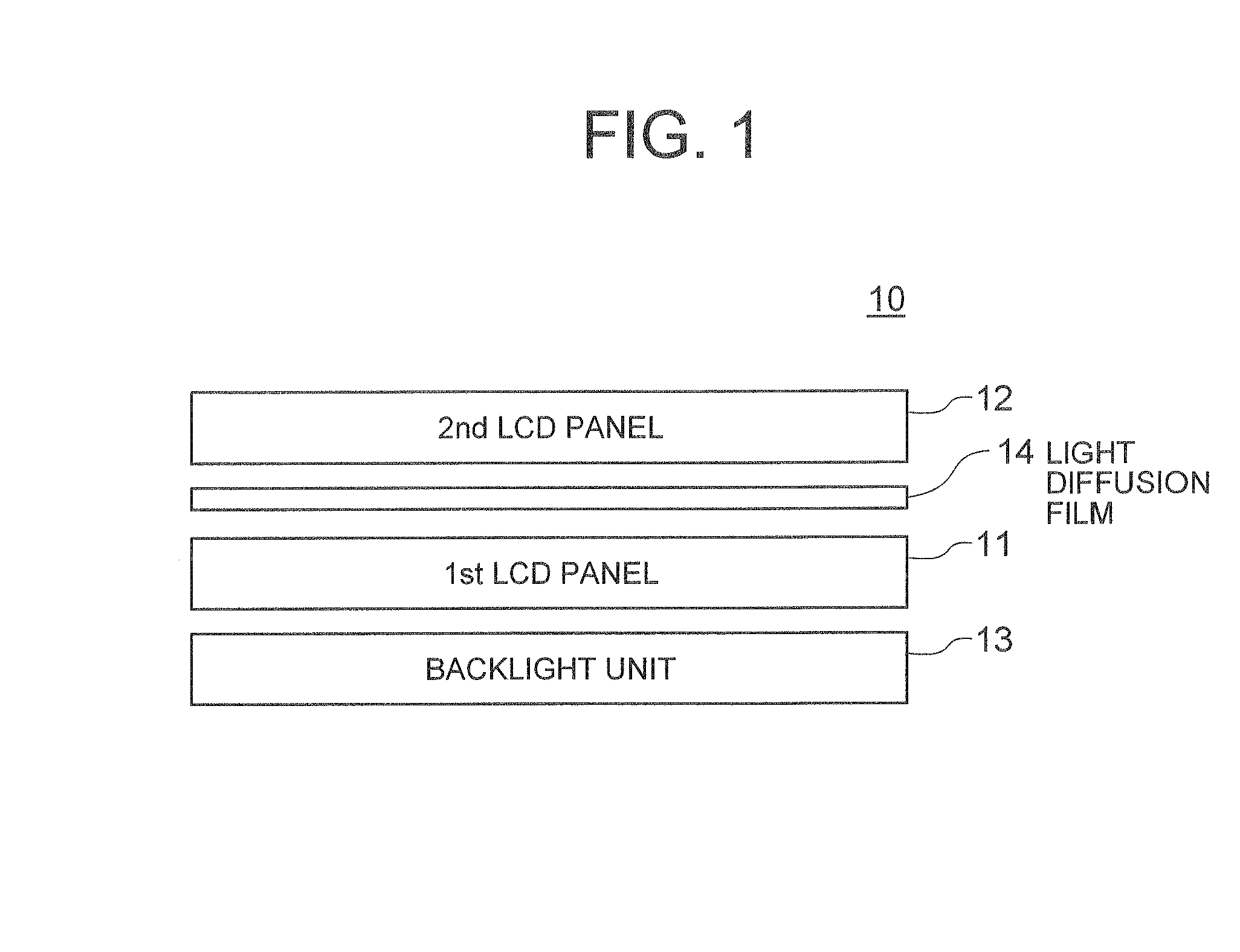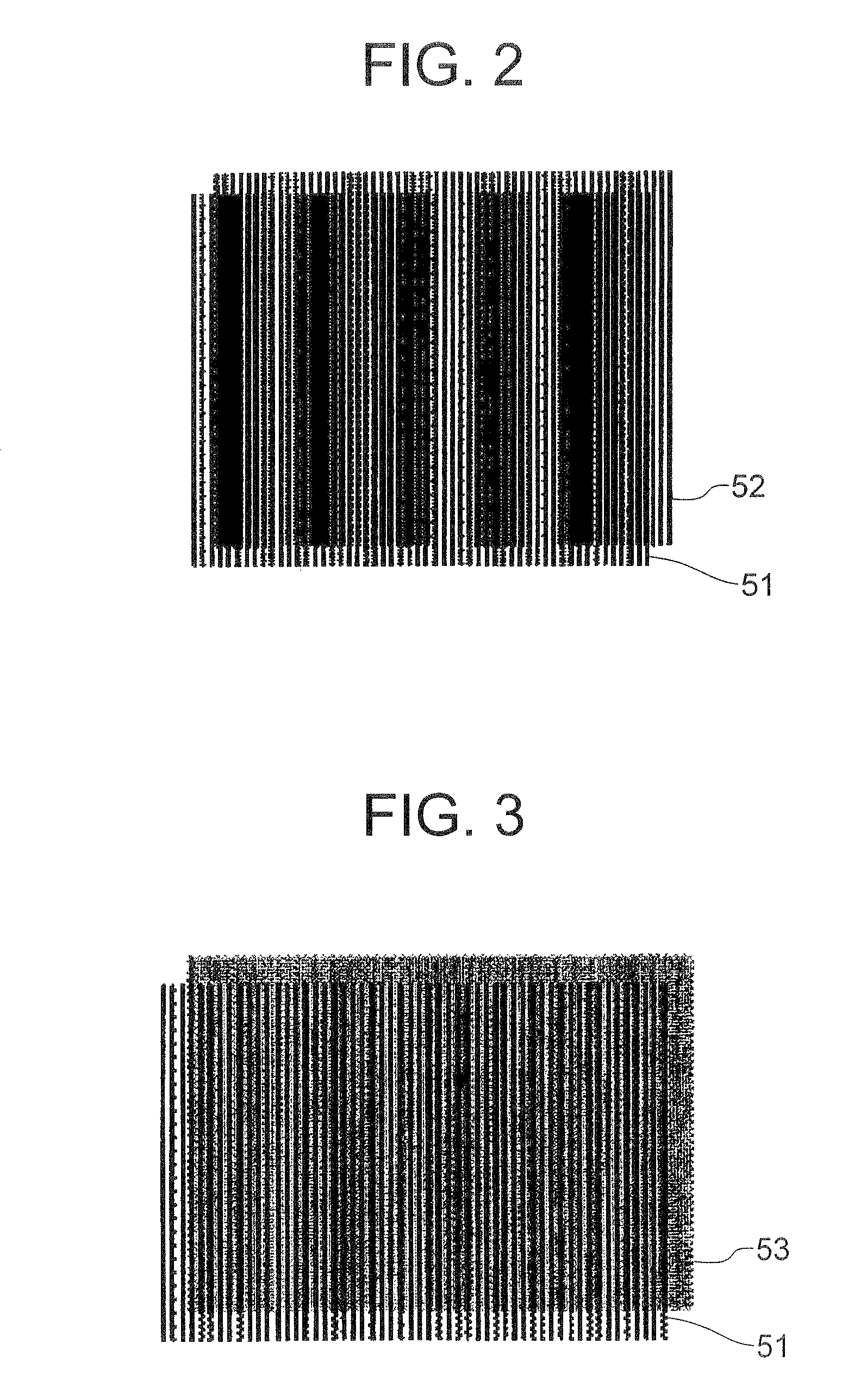Dual panel liquid crystal display device
a liquid crystal display and dual-panel technology, applied in static indicating devices, instruments, non-linear optics, etc., can solve the problems of poor improvement of the contrast ratio obtained by luminance control of the backlight, insufficient live performance, and lower contrast ratio of the lcd panel alone in a dark environment, so as to suppress the degradation of image quality
- Summary
- Abstract
- Description
- Claims
- Application Information
AI Technical Summary
Benefits of technology
Problems solved by technology
Method used
Image
Examples
first embodiment
[0046]Now, embodiments of the present invention will be described in detail with reference to the accompanying drawings. FIG. 1 is a sectional view showing the configuration of a LCD device according to the present invention. The LCD device, generally designated by numeral 10, includes a first LCD panel 11 as a rear-side LCD panel, a second LCD panel 12 as a front-side LCD panel, a backlight unit 13 disposed at the rear of the first LCD panel 11, and a light diffusion layer 14 interposed between the first LCD panel 11 and the second LCD panel 12.
[0047]The first and second LCD panels 11 and 12 each include a pair of transparent substrates opposed to each other with a predetermined distance therebetween, a liquid crystal layer sandwiched between the transparent substrates, and a pair of polarizing films each arranged on the surface of a corresponding one of the transparent substrates far from the liquid crystal (LC) layer. Further, at least one of the first and second LCD panels 11 an...
second embodiment
[0094]FIG. 17 is a top plan view of a typical pixel in the LCD panels 11 and 12 in the The pixel shown in FIG. 3 belongs to the first LCD panel 11, for example. The pixel is associated with a signal line or gate line 21 extending along a row direction 301, a data line 22 extending along a direction 302, and a TFT (thin-film transistor) 24 disposed in the vicinity of an intersection between the signal line 21 and the data line 22. On / off of the TFT 124 is controlled by the potential of the signal line 21.
[0095]The pixel includes a pixel electrode having comb-shape teeth 25 and connected to the data line 22 via the TFT 24, and a common electrode having comb-shape teeth 26 and surface electrode portion 27 which are connected to an inter-pixel common electrode line 23. Within the pixel area, the comb-shape teeth 25 of the pixel electrode oppose the comb-shape teeth 26 and surface electrode portion 27 of the common electrode to drive the LC layer by means of an electric field generated ...
fourth embodiment
[0114]FIG. 22 shows a multiple-panel LCD device according to the present invention. The LCD device, generally designated by reference mark 10d, includes a backlight unit 13, a first LCD panel 11, a light condensing film 15, a light diffusion film 14 and a second LCD panel 12. The light condensing film 15 condenses the light emitted by the backlight unit 13 and passed by the first LCD panel, to pass the light toward the light diffusing film 14. The light diffusion film 14 diffuses the condensed light to the second LCD panel, thereby gradating the difference between the bright luminance and the dark luminance generated by the black matrix, while maintaining the condensed state of the light having a higher transmittance.
[0115]Examples of the material for the light condensing film 15 include an optical film such as described in Patent Publication JP-1999-508622. The optical film described therein mounts thereon a structure including a plurality of linear prisms. The linear prisms have a...
PUM
| Property | Measurement | Unit |
|---|---|---|
| angle | aaaaa | aaaaa |
| polar angle | aaaaa | aaaaa |
| polar angle | aaaaa | aaaaa |
Abstract
Description
Claims
Application Information
 Login to View More
Login to View More - R&D
- Intellectual Property
- Life Sciences
- Materials
- Tech Scout
- Unparalleled Data Quality
- Higher Quality Content
- 60% Fewer Hallucinations
Browse by: Latest US Patents, China's latest patents, Technical Efficacy Thesaurus, Application Domain, Technology Topic, Popular Technical Reports.
© 2025 PatSnap. All rights reserved.Legal|Privacy policy|Modern Slavery Act Transparency Statement|Sitemap|About US| Contact US: help@patsnap.com



